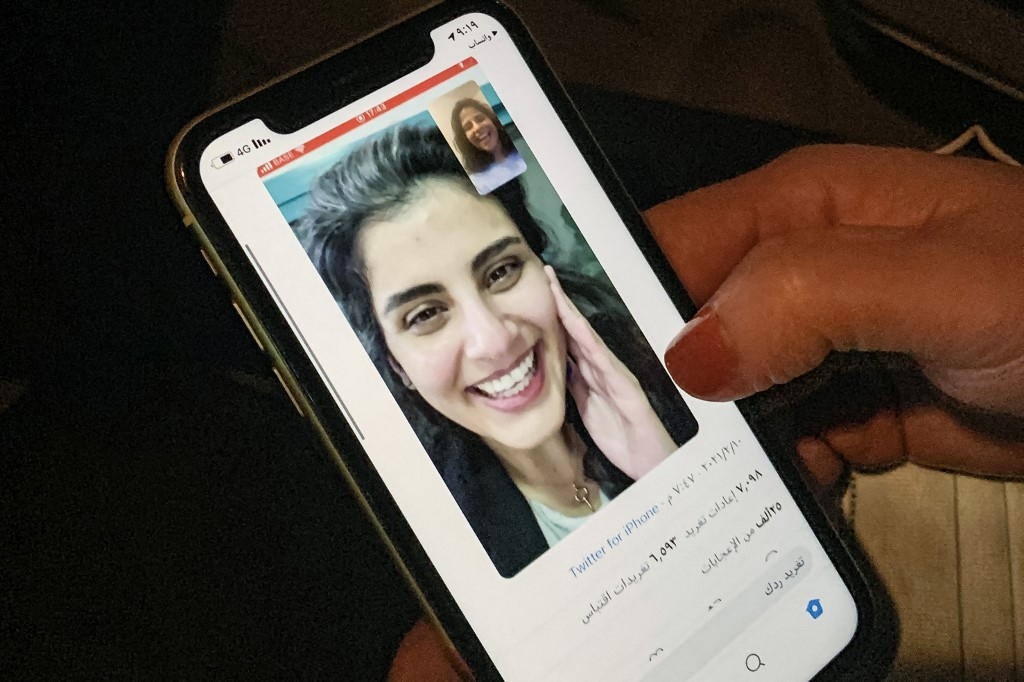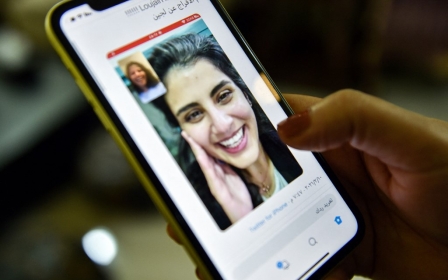Saudi women's rights activist pursues lawsuit against UAE firm and ex-US operatives

Saudi human rights activist Loujain Hathloul is pushing ahead with a US lawsuit against an Emirati cyber-surveillance firm and three former US intelligence operatives accused of hacking her iPhone.
This week, Hathloul’s lawyers filed an amended complaint with the US federal court in Oregon against DarkMatter Group and the three men weeks after a judge dismissed their earlier case.
Judge Karin Immergut found that there was insufficient contact between the defendants and the US for her court to exercise personal jurisdiction, but left the door open for Hathloul’s team to prove otherwise.
The amended complaint, filed on Monday, alleges that DarkMatter and the former operatives used US technology and their US intelligence training to help Emirati security services spy on Hathloul.
The Emiratis, her lawyers argue, used the information gleaned from Hathloul’s phone to arrest and extradite her to Saudi Arabia where she was detained, imprisoned, and tortured.
New MEE newsletter: Jerusalem Dispatch
Sign up to get the latest insights and analysis on Israel-Palestine, alongside Turkey Unpacked and other MEE newsletters
Hathloul, 33, has been a leading advocate for women’s rights in Saudi Arabia, including campaigning for the right for Saudi women to drive and against the kingdom’s male guardianship system.
In May 2018, two months after she was extradited from the UAE, she and other prominent women’s rights advocates were arrested.
A month later, the driving ban they had long protested was officially lifted.
Hathloul was released from prison in 2021 after 1,001 days of detention but remains subject to a travel ban and unable to leave Saudi Arabia.
“Our sister Loujain has been through an unimaginable ordeal for her defence of women’s rights. She has been tortured and sentenced as a terrorist, kidnapped, and forcibly disappeared,” said Alia Hathloul, Loujain’s sister.
“All these violations have taken place with the use of spyware technologies.”
Purple Sword
Hathloul was one of a group of human rights activists, academics, and journalists allegedly targeted by Project Raven, the secret DarkMatter unit established and run by the former operatives and first reported by Reuters. Her code name was “Purple Sword”.
According to the complaint, the project had, at one point, an estimated annual budget of $34mn and around 40 US personnel.
In 2021, the three former operatives entered into a deferred prosecution agreement with the US Justice Department, admitting they hacked into US computer networks and exported tools and services without obtaining US government permission.
To avoid prosecution, they agreed to pay $1.69mn over three years and never again seek US security clearances.
In addition to violating US cybersecurity laws, Hathloul’s lawyers argue that the company and former operatives aided and abetted crimes against humanity.
“With authoritarianism encroaching around the globe, we must be more vigilant than ever in protecting human rights advocates from threats to their digital security,” said David Greene, Civil Liberties Director for the Electronic Frontier Foundation, one of the groups representing Hathloul.
“Companies that employ spyware on behalf of oppressive governments must be held accountable for the resulting human rights abuses.”
Middle East Eye has sought comments from the lawyers representing DarkMatter and the three other defendants.
Middle East Eye delivers independent and unrivalled coverage and analysis of the Middle East, North Africa and beyond. To learn more about republishing this content and the associated fees, please fill out this form. More about MEE can be found here.





